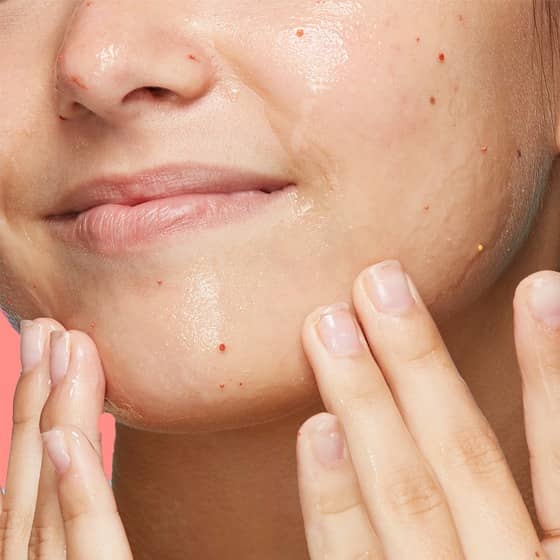How to Prevent Dry Skin and Address 4 Common Issues

Mostly everyone has suffered from dry skin issues at some point. You wake up with tight skin and just know: It's going to be a dry day . Of course, some people never get a reprieve because their skin isn't as effective at retaining moisture. It's fair to say that for those who deal with dry skin on a daily basis, it can be a frustrating relationship!
Dry skin generally occurs when the skin's barrier function is compromised, leading to a reduction in its natural moisture. The result is everything you associate with dry skin — scaliness, dullness, increased sensitivity (such as burning and itching) and an accentuation of lines and wrinkles. Then, because the skin barrier has been compromised, dry skin becomes more prone to irritation. This is how you might find yourself with redness, stinging, flakiness and breakouts.
Fortunately, it is possible to bring life (and more importantly, moisture) back to dry, irritated skin.
What Causes Dry Skin?
For some people, dryness may be caused by a natural genetic predisposition to having smaller amounts of natural moisture and fewer emollient components in the skin. However, it can also be triggered by environmental — and seasonal — factors.
It's frequently due to a harsh, dry environment (wind, cold, dry heat due to indoor heating during winter months) and even more frequently due to the way one cares for skin — repeated washing, especially with harsh products, can exacerbate dry skin," according to Jennifer Segal, M.D., dermatologist and owner of Metropolitan Dermatology Institute. "Astringents, such as toners that remove oil, can worsen the condition."
Whether you occasionally deal with dry skin or experience it every day, it helps to know the signs! Here are a four dry skin issues — and solutions — to keep in mind.
1. Itchiness
One of the most common issues that comes with dry skin is excessive itching. Unfortunately, scratching itchy areas often ends up making skin even more sensitive to the environment! To avoid this vicious cycle, try applying moisturizer in the morning, after showers and before bedtime. Moisturizing is especially important at night, when the symptoms of itchiness tend to ramp up.
2. Scaliness
This issue typically occurs when the skin is so dry that it flakes. Thankfully, you can tackle scaliness by taking a few preventative actions. Starting each morning and ending each night by using a gentle cleanser (and immediately following with a gentle, fragrance-free moisturizer) can be super effective.
3. Redness and Burning
As you've probably experienced, it doesn't take much for dry skin to become red and inflamed. In these circumstances, it's best to clear your skin of oil and irritants with a gentle cleanser, immediately pat dry and then lock in the moisture with a fragrance-free moisturizing cream.
4. Breakouts
Sometimes red, inflamed bumps appear on the cheeks — and especially around the mouth, chin and nose — in response to dryness. To prevent this, cleansing is your new priority! Try using a gentle soap and cleanser twice a day and pat dry.
It's a good idea to follow up with a moisturizer ( fragrance free, of course ) and a mineral-based sunscreen with an SPF of 30 or higher. Dr. Segel recommends those with dry skin issues avoid astringents, toners and potent cleansers, even if they're popular acne fighters among people with other skin types.
How to Prevent Dry Skin
Protecting your skin from external factors that cause dryness is the best way to keep your skin dewy and soft. Shedding any irritants your skin has picked up during the day with a gentle cleanser is the perfect place to start.
"Cleansing is an important step that removes dirt and bacteria from the skin," says Dr. Segel. "Using a soap-free, gentle cleanser allows one to do so without over drying or stripping the skin."

For optimal results, use lukewarm water rather than hot — it'll be less drying and irritating. And while you cleanse, keep your favorite moisturizer within reach. Immediately moisturizing your cleansed skin can help it retain the moisture of the water. When you trap that goodness within the skin, you minimize evaporation (a process that can further dry out the skin).
To keep your skin barrier moist and healthy, remember to always use a quality moisturizer, both after cleansing in the morning and at night and throughout the day as needed. Even if you're prone to dry skin issues, taking these preventative steps can keep your skin soft, smooth and supple!
